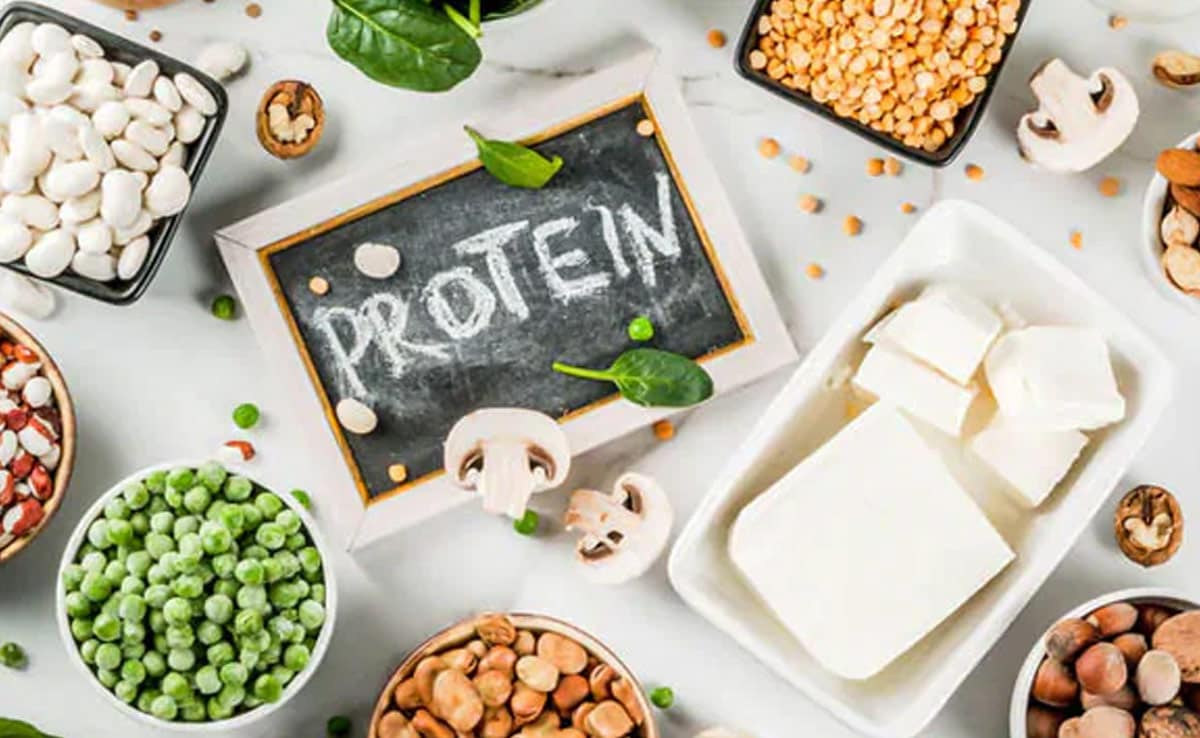
Our plates might be comforting and familiar, but a new study by the Indian Council of Medical Research (ICMR) suggests they could also be silently contributing to India's growing health crisis. The nationwide research, published in Nature Medicine, has found that the average Indian diet is heavily tilted towards carbohydrates, accounting for a staggering 62% of daily calories, while protein and healthy fats remain worryingly low. This imbalance, the study warns, is directly linked to rising cases of diabetes, prediabetes, and obesity across the country.
The findings are a reminder that while traditional Indian meals are deeply rooted in culture, modern dietary choices and portion patterns need urgent correction. Small shifts, like adding more protein-rich foods and choosing healthier fats, can make a big difference in curbing metabolic diseases.
Also Read: Protein Snacks, Protein Drinks, Protein Desserts - Are We Going Overboard With Protein Craze?

Indian meals are usual carbs-heavy
Key Findings Of The ICMR-INDIAB Research
The ICMR-INDIAB study surveyed over 1.21 lakh adults from both urban and rural settings across 36 states, union territories, and the National Capital Territory (Delhi). It provided one of the most comprehensive overviews of India's dietary landscape and its links to metabolic risks.
Here are the key findings:
- High-Carb Dependency: About 62% of daily calories in Indian diets come from carbohydrates, one of the highest proportions globally.
- Low-Quality Carbs Dominate: Most of these carbs come from white rice, milled grains, and added sugars.
Regional Patterns:
- White rice dominates in the South, East, and Northeast.
- Wheat leads in North and Central India.
- Millets are major staples in only a few states - Karnataka, Gujarat, and Maharashtra.
Health Link:
- High carbohydrate intake is linked to a 15-30% higher risk of type 2 diabetes, prediabetes, and both general and abdominal obesity.
- Protein Deficit: Only 12% of calories come from protein (recommended: 15%). Most of it is plant-based, with dairy contributing 2% and animal protein just 1%.
- Sugar Excess: 21 states and UTs consume more than the recommended limit of 5% of calories from added sugar.
- Fat Quality Concerns: While total fat intake is within limits, saturated fat consumption exceeds safe levels in most regions, and healthy fats (like omega-3s) are too low.
Interestingly, researchers found that even switching from white rice to whole wheat or millets didn't reduce diabetes risk if total carbohydrate intake remained high. This is because milling - which increases the glycaemic index - causes similar blood sugar spikes across different grains.
A simple, sustainable way to improve metabolic health is to replace a portion of carbs with protein-rich foods. Protein not only helps manage blood sugar and maintain muscle mass, but also keeps you full longer, reducing overeating.
Also Read: 5 Protein Mistakes Women Make That Could Be Sabotaging Their Health Goals
High-Protein, Low-Carb Foods to Add to Your Diet

Protein is important for good health.
Nutritionist Rupali Datta suggests some easy, Indian-friendly high-protein, low-carb options:
- Eggs: A complete protein source that's versatile and affordable.
- Paneer: Rich in casein protein and calcium; pairs well with vegetables for balanced meals.
- Greek Yoghurt or Curd: Offers protein and probiotics for gut health.
- Pulses and Legumes: Lentils, chickpeas, rajma, and moong dal are excellent plant proteins.
- Soy and Tofu: High in protein and low in carbs - a great vegetarian option.
- Fish: Especially fatty fish like salmon and mackerel, for protein plus omega-3s.
- Lean Chicken or Turkey: Opt for grilled chicken or steamed versions instead of fried.
- Nuts and Seeds: Almonds, walnuts, flaxseeds, and chia seeds provide protein and healthy fats.
Pro tip: Try replacing a portion of rice or roti with dal, paneer, or eggs. Even small swaps can have big health payoffs over time.
What Are Healthy Fats - And Why You Need Them

Include nuts and seeds in your diet to increase your healthy fats intake.
Photo Credit: iStock
Contrary to popular belief, not all fats are bad. In fact, healthy fats are essential for heart health, hormone balance, and brain function. The ICMR study noted that most Indians consume too much saturated fat (from ghee, butter, and fried snacks) and not enough unsaturated fats (from nuts, seeds, and certain oils).
Here's how to strike a better fat balance:
Include Healthy Fats:
- Nuts & Seeds: Almonds, walnuts, sunflower seeds, flaxseeds, and chia seeds.
- Oils: Use mustard oil, groundnut oil, olive oil, or coconut oil in moderation.
- Fatty Fish: Salmon, sardines, mackerel - great sources of omega-3 fatty acids.
- Avocados: Though not traditional, they're nutrient-dense and versatile. Here are some avocado recipes you can try.
Limit Unhealthy Fats:
- Avoid excessive ghee, butter, and vanaspati.
- Cut down on deep-fried foods and bakery items high in trans fats.
- Reduce processed snack foods - they're often loaded with poor-quality oils.
The ICMR findings highlight how deeply our carbohydrate dependence runs. India's deep-rooted food culture is full of flavours, but the ICMR study shows it's time to balance tradition with nutrition. By consciously reducing refined carbs, upping protein intake, and including good fats, we can take a major step toward preventing lifestyle diseases.
In short - your next meal doesn't need to be bland or restrictive. It just needs a smarter mix of macronutrients.
Track Latest News Live on NDTV.com and get news updates from India and around the world

